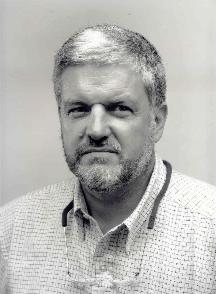Koninklijke Onderscheiding voor John Nerbonne
Vrijdag 25 april 2014 ontving John Nerbonne op voordracht van de Rijksuniversiteit Groningen een Koninklijke Onderscheiding. Hij is benoemd tot Ridder in de Orde van de Nederlandse Leeuw.

Prof.dr.ir. J. (John) Nerbonne
John Nerbonne (1951) is hoogleraar Informatiekunde (Computational Linguistics). Zijn vakgebied bevindt zich op het snijvlak tussen informatica, taalkunde en cognitiewetenschappen. Nerbonne valt daarbij op door grote technische expertise te koppelen aan taalkundig onderzoek.
Vanaf 1989 is Nerbonne op hoog niveau bezig met onderzoek, eerst als visiting professor bij Hewlett Packard laboratories en sinds 1993 bij de Rijksuniversiteit Groningen. Hij heeft op unieke en innovatieve wijze de computationele linguïstiek gecombineerd met de dialectologie – zodanig zelfs dat zijn aanpak inmiddels bekend staat als de Groninger School. Dit is een van de onderdelen van zijn onderzoek, maar Nerbonne is veel breder georiënteerd. Hij is een pionier in het verenigen van methodes behorend tot informatica en computationele biologie op het terrein van taalvariatie en taalverandering. De onderzoeksgroep van de computationele linguïstiek in Groningen heeft hij tot een van de sterkste in Europa gemaakt. Nerbonne behoort tot de vijf meest geciteerde onderzoekers van de Faculteit der Letteren en kan bogen op uitmuntende scores bij visitatierondes. Het uitzonderlijk vermogen van Nerbonne om goede onderzoekprojecten aan te trekken heeft hierbij een grote rol gespeeld. De opleiding Informatiekunde, voorheen Alfa-informatica, heeft hij de afgelopen twintig jaar tot enorme bloei gebracht en omgebouwd van een bovenbouwopleiding naar een volwaardige bachelor- en masteropleiding.
Nerbonne heeft zich ook een initiatiefrijk, kundig bestuurder getoond. Vanaf het begin heeft hij een leidende rol gespeeld in de Landelijke Onderzoekschool Taalwetenschap Nederland (LOT). Daarnaast is hij maar liefst dertien jaar - vijf jaar is gebruikelijk - directeur geweest van het taalkundig onderzoekinstituut van de RUG, het Center for Language en Cognition Groningen (CLCG). Nerbonne was een buitengewoon betrokken en capabel bestuurder met groot strategisch inzicht. De taalkunde valt uiteen in verschillende deelgebieden, maar Nerbonne is in staat gebleken al die gebieden tot hun recht te laten komen. Zijn stijl van leidinggeven is bedachtzaam, vasthoudend en bindend met een goed gevoel voor de strategie, en het stimuleren van individuele onderzoekers. Veel onderzoekers hebben baat gehad bij zijn buitengewoon goede adviezen om succes te krijgen bij subsidiegevers.
Nerbonne heeft aan meerdere internationale projecten meegewerkt. Niet alleen ten behoeve van zijn eigen onderzoek, maar ook om ontwikkelingslanden te helpen. Zo is hij co-director van een project om vier publieke universiteiten in Oeganda te helpen bij het verbeteren van het curriculum en het versterken van de onderzoekscapaciteit op het gebied van Computer Science. Opvallend bij het leiden van dit project is Nerbonne’s uitzonderlijk vermogen tegengestelde belangen te verenigen, vaak onder moeilijke omstandigheden en met cultuurverschillen. Hij heeft bijzonder veel gevoel voor deze verschillen en belangen en slaagt er steeds in op een krachtige, diplomatieke en aimabele wijze alle bij het project betrokkenen te binden.
Het begeleiden van promovendi hoort tot de taken van elke hoogleraar, maar de kwaliteit en kwantiteit van begeleiding van Nerbonne is uitzonderlijk. Als promotor bracht hij 36 promovendi tot de afronding van hun promotie. Veel daarvan hebben nu een positie als postdoctoraal onderzoeker, universitair docent of hoogleraar. Nerbonne toont altijd bijzonder grote zorgzaamheid voor promovendi en wil altijd de beste opleiding voor jonge onderzoekers realiseren. Bijzonder is ook hoe hij binnen zijn eigen afdeling aan teambuilding werkte, waarbij hij veel oog had voor het belang van informele contacten. In het algemeen geldt dat Nerbonne nooit alleen ten behoeve van zichzelf heeft gewerkt. In al zijn functies heeft het belang van anderen en het stimuleren van jong talent een zeer belangrijke rol gespeeld. Hierbij verloor hij overigens nooit de academische kwaliteit uit het oog.
Vanwege zijn uitzonderlijke wetenschappelijke kwaliteit én zijn bestuurlijke kwaliteiten is prof. Nerbonne in veel (internationale en nationale) besturen gevraagd die te maken hebben met taalwetenschap. Zo is hij onder meer voorzitter van de European Association for Digital Humanities, bestuurslid bij CLARIN en STEVIN en lid van de adviesraad sectie Taal- en spraaktechnologie bij de Nederlandse Taalunie. Ook was hij gasthoogleraar of -onderzoeker aan bijvoorbeeld Stanford University en in Tübingen, Stuttgart, Parijs en Freiburg. Zijn verkiezing in 2005 tot lid van de Koninklijke Nederlandse Akademie van Wetenschappen en het feit dat hij in 2012 de prestigieuze Alexander von Duitse Humboldtprijs ontving getuigen ook van zijn buitengewone verdiensten.
John Nerbonne is benoemd tot Ridder in de Orde van de Nederlandse Leeuw.
Meer nieuws
-
16 december 2025
Hoe AI mensen met taalstoornissen kan helpen hun spraak te vinden
-
09 december 2025
Zijn robots de oplossing?
-
08 december 2025
Burgerparticipatie onmisbaar voor een duurzame energietoekomst
